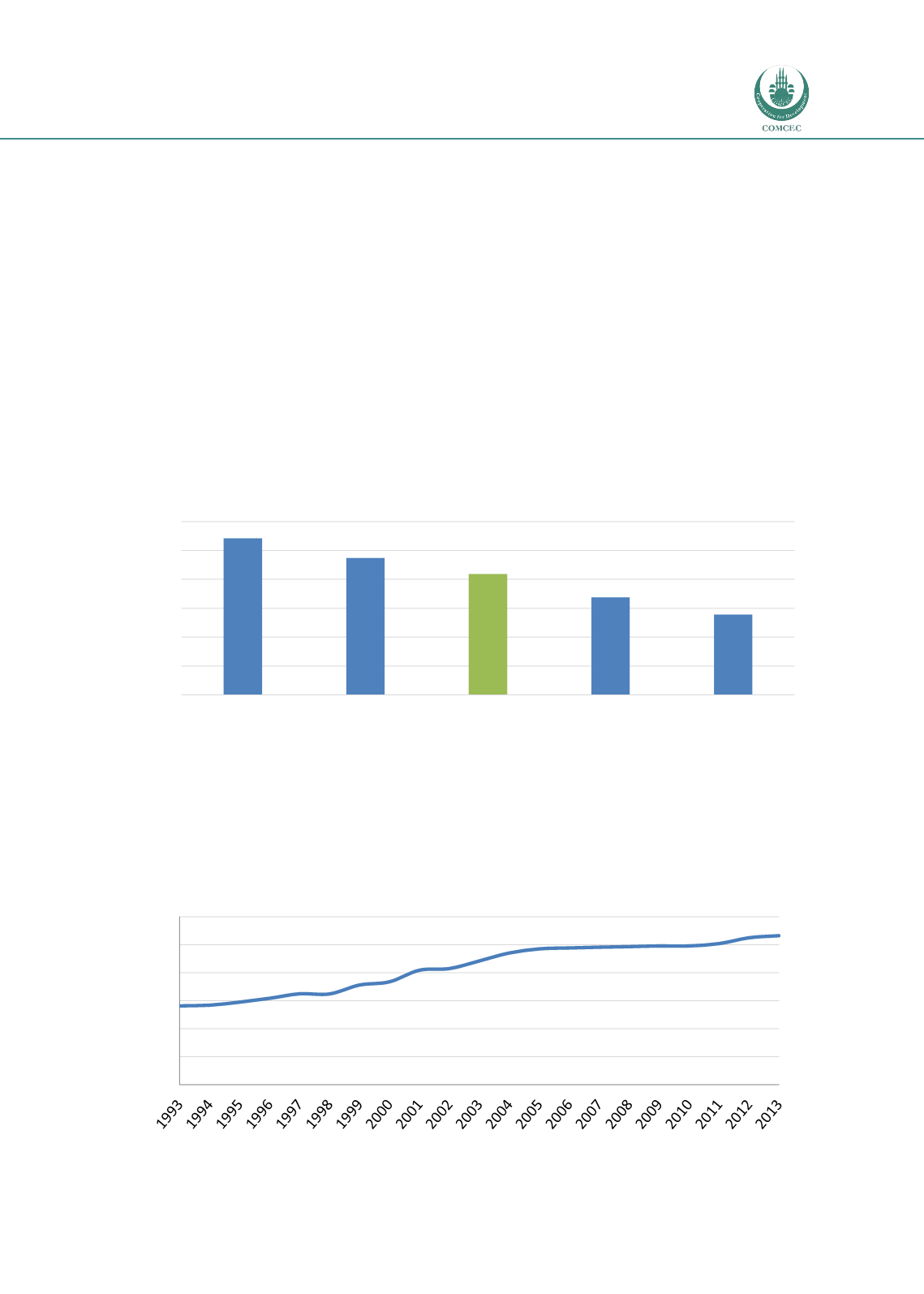

Promoting Agricultural Value Chains
In the OIC Member Countries
67
5.
Case studies: agricultural value chain promotion in six OIC Member
Countries
5.1
The date value chain in Saudi Arabia
The date palm is one of the most important fruit crops in Arab countries where it has
historically been viewed as a symbol of life in the desert due to its high tolerance of elevated
temperatures and arid conditions (El-Juhany, 2010). Dates take a prominent place in Muslim
traditions and diets, and play a critical role in food security, as they are rich in protein,
vitamins and mineral salts.
In Saudi Arabia, the unique role of dates is particularly pronounced. The Kingdom has the
worldwide highest rate of per capita consumption of dates, reaching 34.8 kg in 2003 (Al-
Shreed et al., 2012), and is ranked as the world’s third largest producer of dates, after Egypt
and Iran (see
Figure 5-1), accounting for about 17 percent of global date production (Al-
Wusaibai et al., 2014).
Figure 5-1 Top five date producing countries, average 1993-2013
Source: FAOSTAT, 2015
Within Saudi Arabia, dates constitute the second most important agricultural commodity in
terms of quantity after milk and the third most important agricultural commodity in terms of
value after poultry and milk (FAOSTAT, 2015). Production of dates has grown by an average of
3.5 percent from 1993 to 2013, largely due to increases in the production area (see
Figure 5-2).
Figure 5-2 Date production in Saudi Arabia, 1993-2013
Source: FAOSTAT, 2015
0.0
0.2
0.4
0.6
0.8
1.0
1.2
Egypt
Iran (Islamic
Republic of)
Saudi Arabia
Iraq
Pakistan
Million tonnes
0
0.2
0.4
0.6
0.8
1
1.2
Million tonnes

















